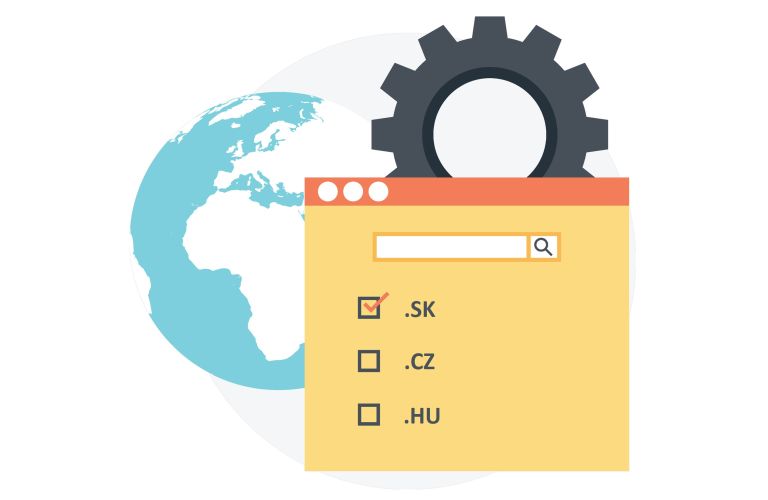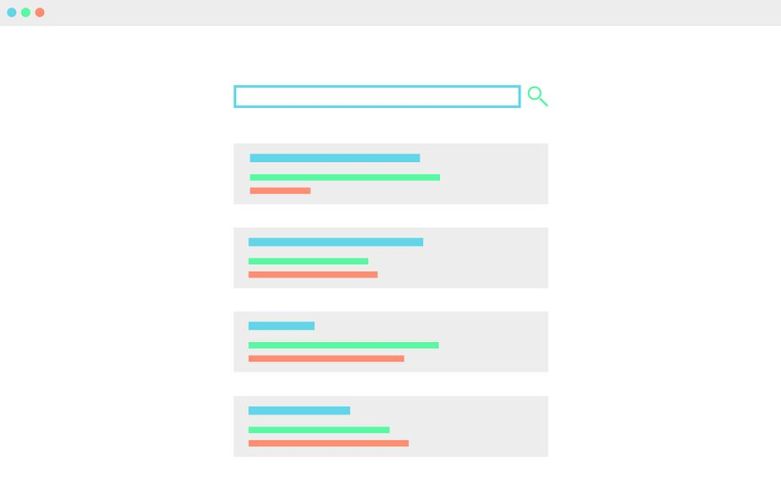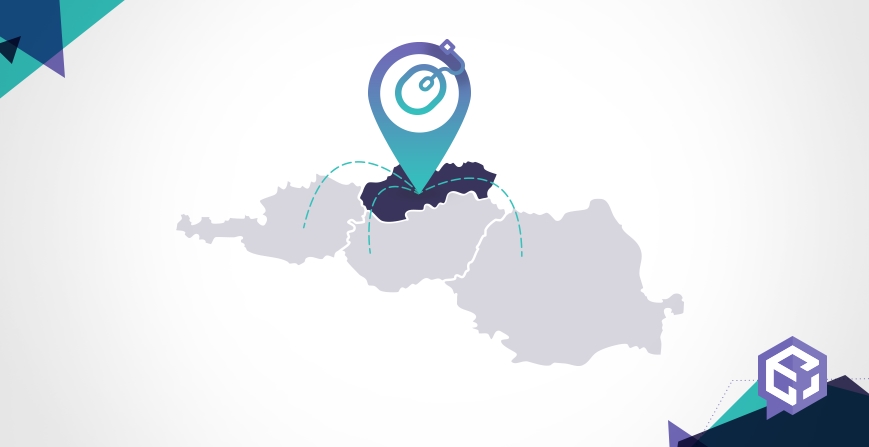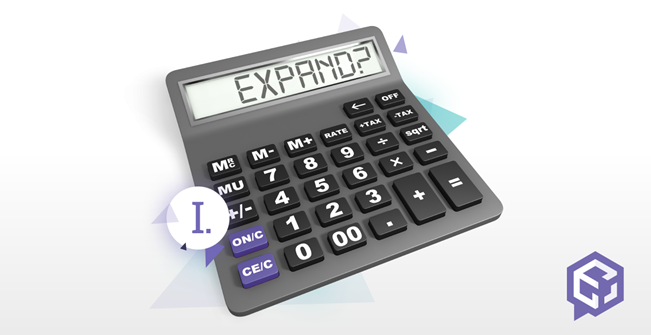Is the domain name so important?
The domain and its naming is often the first point of contact with potential customers. Therefore, the right choice of name should not be underestimated, because it will affect more or less everything in the future - from the perception of the brand itself, seo marketing, to building a relationship of trust with customers and loyal fan base.
Let's ask yourself a question. Would you like the domain name ab13m8lop.com? Would you trust such online business and would you give it your personal data? Most customers would say "no" on their own experiences from the online environment, and for you as a business owner, can each of this no mean an obstacle and and lost conversion
Can you choose the right one?
You surely know how to choose the right domain name, but assessing its "correctness" is very subjective and influenced by a number of factors. Last but not least, a well-established marketing strategy is actively working with the given name. For this reason, it is not possible to determine what the correct name is and what is not in advance, to give an accurate recommendation that can be used to make the name most relevant to its purpose.
How do I choose a domain name? Is there a key how to choose?
The universal key does not exist, there are only a few principles, most of which you can use in any area.
Can a domain name be extremely long or extremely too short?
Of course, long domain names can be registered. However, this is unnecessary because the too long domain name is hard to remember, and in addition, in today's fast time, no one will want to tap XY characters. It's tedious on the keyboard and even more frustrating on the mobile device. The ideal length of the domain name is up to 10 characters long. Whether it's 2, 5 or 8 characters, that is not much important. It is important that it is easy to write and remember.
Should the owner of the online shop think about the multilingual name from the beginning in the case of the expansion to new markets? Or choose a domain with a local equivalent in each country?
Basically, none of these was is not bad if you use it correctly.
For example, with a multilingual name, it is not worthy for you to have the ending of the domain of the mainland where you started and then have different language mutations. If your domain had a .hu ending and you would have language mutations .hu/en, .hu/de or .hu/fr, it would not look good if you wanted to move to foreign markets, but it might be if you would like to focus on the foreign audience in your market. Therefore, this is not a mistake, but the target market must be taken into account, as people from one country tend not to click on the ending of another country.
If you want to have a multilingual name, it would be better to choose a generic domain such as .com, where you should have the content in English, and other language mutations should be in the form .com/fr, .com/hu, and so on. At the same time, due to local patriotism of consumers, it is certainly appropriate to register local domain variants that can be primarily redirected to the main domain with a language mutation, or you can make a version of your shop dedicated to the local market.
For example, if you take a look at the eshop Alza, they have chosen this path. In most of the countries where they operate, they have the alza domain with the ending of the country, Amazon as well - amazon.co.uk, in amazon.de, in amazon.fr.
In Expandeco, we have already help with our clients to buy domains for new markets. If the domain is free, can we comfortably purchase it via Webglobe?
If the domain is free, then you can register it with any domain registrar in the world, it depends only on who has the endings available and at what prices. For example, in Webglobe, we have over 100 endings available.

Do the same conditions apply worldwide, e.g. for Asia or America?
For most of the domain endings, the same rules apply globally, but some have some specifics defined by the local domain authority that manages the endpoint. For example, for Malaysian domains it is a condition of being registered with a resident entity in Malaysia. This is also the case in Ukraine, where the ownership of the .ua domain is even subject to a registration mark valid in the territory of Ukraine. In any case, this information should be given by the domain registrar listed in his domain pricing so that the user can quickly check what specific conditions apply to that domain ending.
Are foreign domains more expensive?
The final price of a domain for a customer depends on the price the owner of the domain ending gives to registrar and what margin is determined by the registrar, the role also plays the competitive environment. For example, foreign companies often give away domains for free, but only for the first year. After that you have to pay a registration fee, sometimes even higher than the current amount. So be careful. For example, you can compare prices in Webglobe with other providers where we have, in many cases, more favorable prices.
But what if the domain is occupied? What is the procedure if the domain I want is already owned by someone else? Can these domains be redeemed?
Since domains are being purchased in large volumes, it is quite likely that your first choice will already be occupied. Mainly .com domains, as these are used the most. If someone else already owns a domain and you see that the site is up and running regularly, you probably will not be able to get the domain. You would need to give them a good reason to leave their domain. Chances are minimal in this case.
If your domain is old and outdated, you have a greater chance of getting it. Either you can contact the site manager or if the domain is not extended, you can try to purchase it once it is released. You can find domain expiration on whois.com or directly on our webglobe.com domain when verifying the domain. If the domain is occupied, just click on our whois link and you will automatically see the information.
You can also get a good domain name through domain auctions. On the Internet, you can find multiple portals where they are traded, for example uk.auctions.godaddy.com or sedo.com.

How do I know the name of the owner, or any contact, so I can reach him?
Generally, for european domains you were able to find contact for the domain owner via whois.com page. With the new GDPR Privacy Policy, it's no longer possible to determine this data when it comes to a physical person. You will only find a registrar who can not provide you this information. You can only send message to the contact you find on the page.
However, if a domain isregistered by a company, whois.com will give you some info.
Another issue that we encounter when expanding with an e-shop is whether it is better to have a domain on the local servers to which country the e-shop sends the goods. For example, if an e-shop addresses an expansion to Hungary, is it better to buy a domain on Hungarian servers?
I would split the answer to this question in two ways - on the one hand, it is better to have servers in that country, on the other hand there is relevance of the national domain for the local market you want to do business in.
The first part can be answered quite simply - with today's high-speed Internet it is more or less doesn't matter. From a logical point of view, it is right to have servers as close as possible to consumers so that information does not travel through many nodes on the opposite side of the planet, but geographically close to the country of interest, it may not be right there.
The second part addresses the topics we have discussed above regarding the relevance of national endings vs. language mutations for your consumers. Sometimes it is also about the specifics of the target market. For example, in China a retailer who wants to operate on the market, must also have registered the domain with the .cn ending, and sell only through this domain to Chinese consumers, must fall within the competence of local authorities and, in case of problematic behavior, its scope may be limited.
Does it affect my site's search experience?
Wherever your servers are located, it has no impact on search results. You need to focus on search engine optimization and the relevance of the content your users are searching for in your area of business. Some time ago Google also took into account the IP address of the server, but not anymore. John Mueller of Google said that today it is such a small factor that we can consider it to be negligible. You can set focus on a particular geolocation by using Google Search Console, and Google will take this setting into account, regardless of where the server is located.








